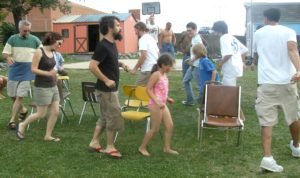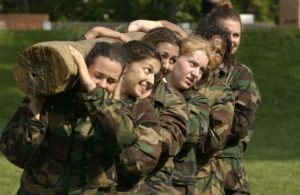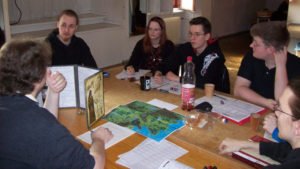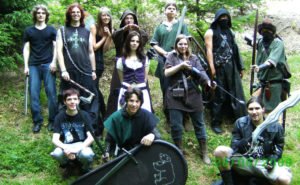
Basically, group dynamics refers to the way people within a group interact with each one another. Therefore, group dynamics games are games which focus on assessing and improving the interactions of people within a group setting.
The Purpose of Group Dynamics Games:
The most common goals for developing and participating in group dynamics games are to:
- Learn how to interact and work successfully in a group of different people. Different personalities can often clash with each other and it’s important to understand this within a group setting.
- Open up new ways of thinking and help participants to learn how to think ‘outside the box’ (find creative solutions).
- Learn about yourself and how you interact with others. From this, you should be able to better your communication and people skills.
- Have fun as a group.
- Learn how to resolve conflicts quickly.
Types of group dynamics games:
Icebreaker games:
The intention of these games is to get the members of a group more familiar and connect with one another. Icebreaker games will require the group members to share information about themselves, such as their names, their hobbies and what personality traits they think they exhibit.
Ice breaker games should be relaxing and allow everyone to feel comfortable and welcome within the group. The facilitator should also be able to determine certain character and personality traits from the group’s responses.
Role-playing games:
In these games, participants ‘pretend’ or ‘imagine’ that they are different people or in a different setting. Role-playing can be done in two ways:
 1. Tabletop role-playing:
1. Tabletop role-playing:
Group members participate in a discussion and are required to imagine a particular scenario.
For example, the group may be told to imagine that they are explorers who have just arrived on an island to undertake a quest.
 2. Live-action role-playing:
2. Live-action role-playing:
In this case, the group members will physically act out the roles they are playing.
They will perform the character’s actions and behave how they think the character they have been assigned would behave in a given situation.
Team building games:

Sequence of events in team building games :
- Setting common goals.
- Clarifying each participant’s role.
- Building good relationships between the members of the team.
- Finding solutions to problems together, as a group, in order to achieve the common goals.
Trust building games:
The objective of these games is to strengthen the trust within the group and to reinforce the idea that members can rely on each other during challenging times.
An example of a trust building game is the ‘trust fall’. This is where one member of the group allows themselves to fall and trusts that the other members of the group will catch them before they hit the ground.
Win win games:
Also referred to as cooperative games or ‘new games’. These games are set out so that each player gets the most they can out of the game. No one is considered a loser, the focus is on fun, corporation, sharing, and overall success of the group, as opposed to personal gain and domination.
For example, participants might be required to carry a huge ball over a certain distance. No single person can achieve this alone but as a group, they are able to move the ball. Together the group achieves what is impossible alone, highlighting the importance of the team in a setting where everyone wins.
Tips to create a good group dynamics game:
There are many factors that contribute to making a game good for developing group dynamics. Here are a few tips to ensure that the games you create remain enjoyable and beneficial:
- A good facilitator or moderator is instrumental in ensuring the smooth running of group dynamics games.
He/she will be responsible for:- Intervening to alter behavior within the group when necessary.
- Helping in decision making
- Acting as a ‘referee’ in the games that involve different teams.
- The games should involve everyone in a way that is equal and fair. The games should, therefore, be considerate and respectful of the group members’ individual capabilities and differences.
- In order to ensure that the games are involving, educational and memorable, moderators should try to involve as many senses as possible. This might involve seeing objects, touching them and listening to sounds at the same time. Particularly creative games might include the senses of smell and taste too.
- The games should follow a logical sequence beginning with ice breaker games, followed by trust building games and finally team building games.
- Comfort of group members is vital to make sure that they get the most out of the games. In addition, the atmosphere should be relaxed and free from disturbances and disruptions.
Remember that in the end, the main objectives are to develop one’s character, foster teamwork and of course to have fun. Keeping these goals in mind should ensure that the games are useful and enjoyable for all participants.
References:
 1. Tabletop role-playing:
1. Tabletop role-playing: 2. Live-action role-playing:
2. Live-action role-playing: